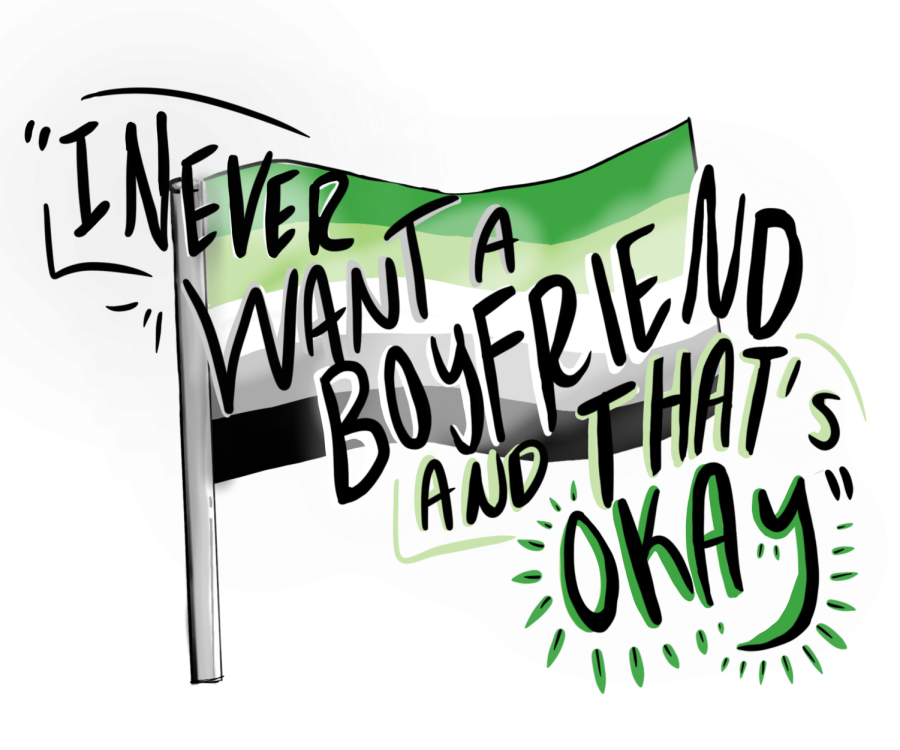I threw up shortly after a boy asked me out when I was 15.
He decided to do this in front of all our friends, so naturally, I felt compelled to say yes. As the hollers and excited cheers roared in my ears, I promptly walked away and found the nearest bathroom to vomit in.
I did not go on that date.
At 17 years old, I made the mistake of telling a guy, very politely, that I wasn’t interested in being anyone’s girlfriend. He called to scream that I was a whore who wanted an excuse to have sex with everyone.
I cried myself to sleep that night.
I didn’t know what was wrong with me. It didn’t help that every family gathering turned into an interrogation about whether or not I had a boyfriend. How was I going to explain that there were always guys around, but the mere thought of harboring romantic feelings toward them didn’t make any sense to me?
All I knew was I had a difficult time separating platonic love and romantic love because I treated everyone exactly the same. A boyfriend was not a viable option in my eyes.
In the end, it took a global pandemic to figure out exactly how I felt.
One day, I opened up a new browser on my laptop and typed in “What does it mean if I don’t want to date anyone?”
The first result highlighted a single term: aromantic.
I guessed what it meant, but I still clicked on every site for hours. I continued to read articles and stories about the spectrum of aromanticism, which is defined as having little to no romantic attraction toward others, and it was…more accurate than anything else felt.
That sucked in more ways than one.
I was pissed I’d never heard of it before. I got the birds and the bees talk when I was 12 years old, but no one thought to explain that I may like sex, but not romance, or neither. The aroace community makes up 1% of the population, and people are far more familiar with asexuality between the two, so I don’t blame my mom in the slightest for leaving it out of “the talk.”
I blame the films and television shows I watched growing up.
Every single one ended with a happily-ever-after involving a romantic couple. I loved them, and I still watch “How to Lose a Guy in 10 Days” religiously, but I didn’t feel connected to these stories.
Each time I got my hopes up that there would finally be a character who truly believed she didn’t need a romantic relationship, Ryan Reynolds or Hugh Grant showed up to steal that from me. This dynamic had a negative impact on me as I grew up. It discouraged me from accepting my aromantic tendencies from a young age. I felt left behind and confused – to say the least – and it still bothers me today that I didn’t see anyone like me on the big screen.
I wonder if I might’ve understood myself sooner if there was someone to look up to.
But the absolute worst aspect of identifying with aromanticism are the stigmas, which add to my discomfort with openly declaring I’m on the spectrum. I’m not “out” to many people, although that’s changing with this writing piece, because I received some negative reactions.
“You just haven’t met the right person yet.”
“You’re simply a late bloomer.”
“But what about (insert guy’s name)?”
It’s disheartening when the immediate response is to challenge me on such a personal issue, especially when they imply that since I haven’t been in a relationship, I couldn’t possibly understand if I’m aromantic.
I just want to scream from the tops of my lungs, “I never want a boyfriend, so leave me alone about it!”
At the same time, I can hardly blame them for responding this way in a world that expects romantic relationships, especially when I do it to myself at times.
I’m turning 21 this month, and I continue to struggle with self-doubt about aromanticism. I don’t know if it’s because I’m a raging overthinker or terrified to solidify my label, but despite the years of internal rumination, I’ll find myself thinking, “maybe someone will change my mind.” I’m not so sure it will happen, and that’s okay.
But I do know the next time a boy asks me out I probably won’t throw up, because I understand I’m not alone. There are others like me, even if we’re hard to find.










